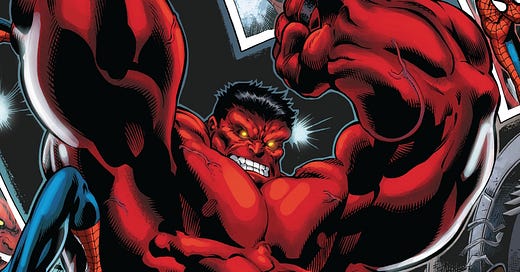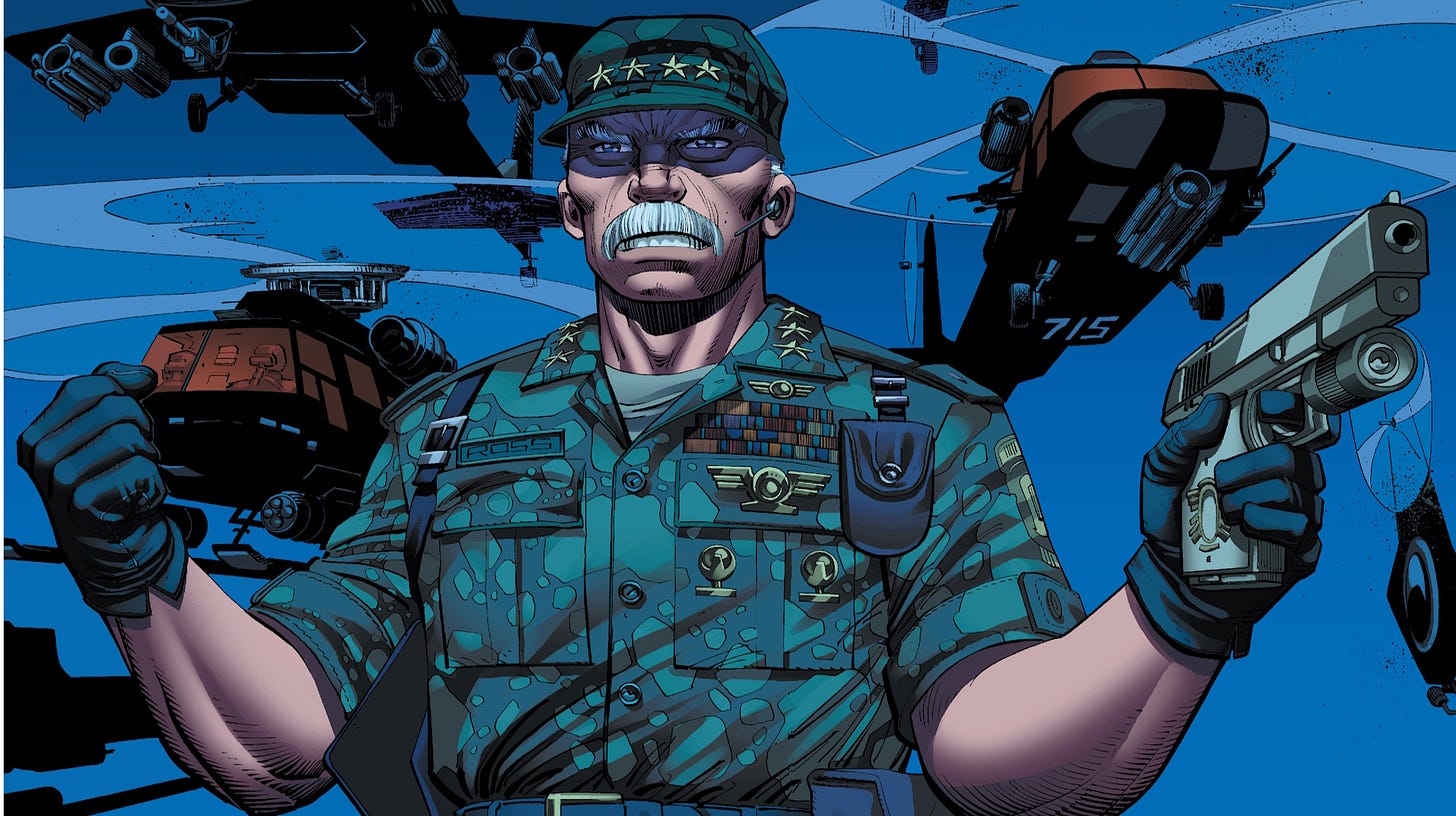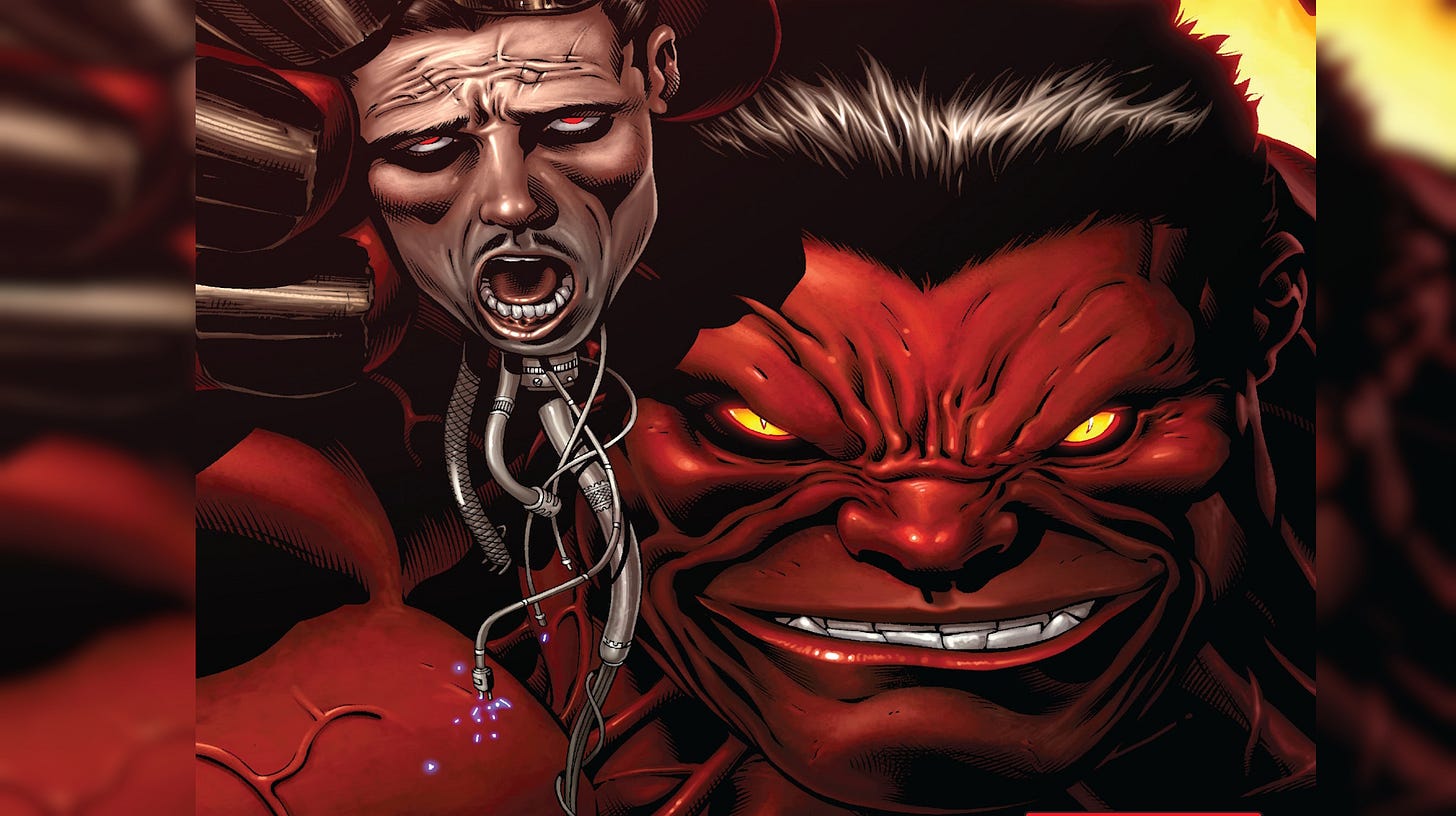Red Hulk: Anti-Hero or Villain?
The Hulk is a troubled character driven by rage. Red Hulk introduces moral ambiguity in stories of the incredible strength of a Hulk. Is he a villain or a hero?
Super hero stories are filled with characters who straddle the line between hero and villain, but few embody this duality as compellingly as Red Hulk. Created as a darker, more aggressive counterpart to the Hulk, Red Hulk—later revealed to be General Thaddeus “Thunderbolt” Ross—is a study in moral ambiguity. From his origins as a relentless hunter of the Hulk to his transformation into the very thing he despised, Red Hulk’s journey blurs the line between hero and anti-hero in fascinating ways. Let’s explore the origins of this complex character, his morally gray actions, and the stories that showcase his unique place in Marvel lore.
The Origin of Red Hulk: A Hunter Becomes the Hunted
General Thaddeus Ross was introduced in The Incredible Hulk #1 (1962) as a high-ranking military officer tasked with capturing the Hulk. Driven by a mix of patriotism, personal vendetta, and obsession, Ross saw Bruce Banner’s alter ego as both a threat to national security and an affront to his authority. Over decades of stories, his relentless pursuit of the Hulk became a defining aspect of his character.
Ross’s transformation into Red Hulk was orchestrated by the Intelligencia, a cabal of supervillains led by the Leader and MODOK. In Hulk #1 (2008), written by Jeph Loeb and illustrated by Ed McGuinness, Red Hulk made his explosive debut. The mystery surrounding his identity fueled speculation among fans, but it wasn’t until Hulk #23 (2010) that Ross was revealed to be the man behind the crimson skin. This shocking revelation reframed his vendetta against the Hulk: Ross became the very monster he had hunted, symbolizing his moral descent and the cost of his obsession.
The Intelligencia’s role in Ross’s transformation cannot be overstated. They grant him power that enable him to challenge even the most powerful heroes. But their manipulation of Ross also highlights his vulnerability. He accepts their help not out of loyalty, but because of his awareness that the troubled country after the loss of Captain America is vulnerable to hostilities.
A Force of Destruction and Redemption
Red Hulk’s actions are often dictated by his own warped sense of justice and his thirst for power. In Hulk #5 (2008), he takes on Thor and manages to manipulate Mjolnir, showcasing his raw strength and tactical cunning. Unlike the traditional Hulk, who is driven by rage, Red Hulk operates with cold calculation, making him a formidable adversary. His brutal takedowns of heroes like Iron Man and She-Hulk further cemented his reputation as a dangerous wildcard.
However, Red Hulk’s story isn’t one of unrelenting villainy. His actions often stem from a twisted sense of duty and a desire to protect the world—on his terms. In Fall of the Hulks and World War Hulks, Ross’s partnership with the Intelligencia begins to unravel as their plans for global domination become clear. By the end of these arcs, Red Hulk turns against his benefactors, exposing their schemes and reclaiming some measure of autonomy.
A pattern of destruction followed by redemption is a hallmark of Red Hulk’s character. In later stories, such as Avengers Assemble and Thunderbolts, Ross seeks to atone for his past by fighting alongside heroes. His tenure with the Thunderbolts, a team of reformed villains, highlights his struggle to redefine himself. Yet, even in these roles, his methods remain morally ambiguous. Ross is willing to cross lines that others won’t, often putting him at odds with his teammates.
The Duality of Red Hulk
General Ross, represents authority, order, and human frailty. Red Hulk, he embodies chaos, power, and the consequences of unchecked ambition. In Hulk #30.1 (2011), Ross reflects on his transformation, acknowledging the irony of his situation. “I hunted the Hulk for years,” he admits. “Now I’ve become him.” This self-awareness illustrates Ross’s attempt to grapple with a sense of self in relation to the reality of his existence.
Red Hulk’s journey explores themes of obsession, redemption, and the corrupting influence of power. His morally ambiguous actions challenge traditional notions of heroism and villainy. By blurring the line between hero and anti-hero, Red Hulk invites readers to question what it means to wield power responsibly.






